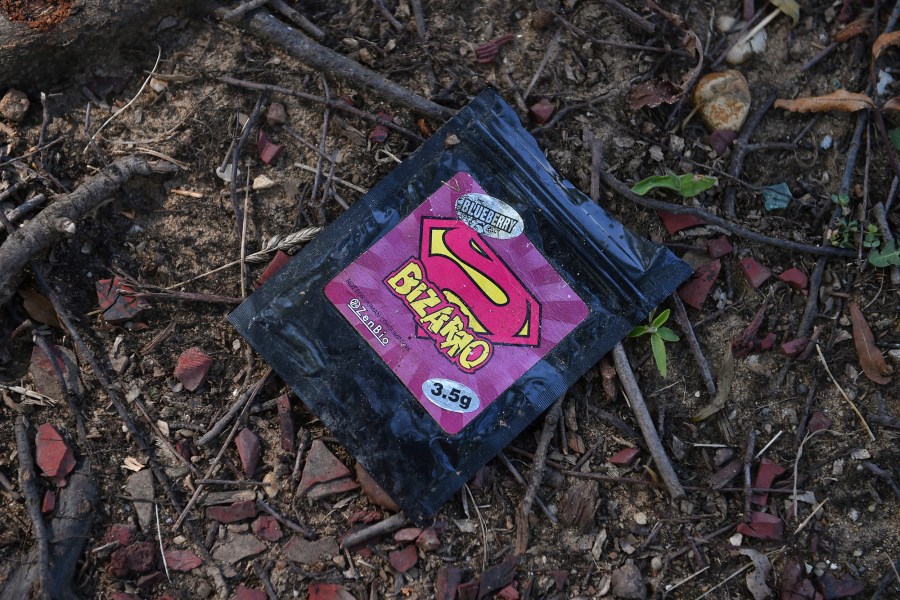A new Supreme Court appeal spotlights one of the strangest criminal sagas prosecuted under one of the most peculiar drug laws, known as the Analogue Act.
The federal law bans selling substances that are “substantially similar” to ones that have already been deemed illegal. But the vague and unscientific nature of the term “substantially similar” has led to confusion in courts. Multiple federal judges have questioned its legality, and even chemists within the Drug Enforcement Administration have disagreed about its meaning.
Notably, the justice most interested in the appeal could be Donald Trump appointee Neil Gorsuch. He wrote critically of the 1986 act when he was on the Denver-based 10th U.S. Circuit Court of Appeals. So it’s unsurprising that Charles Burton Ritchie and Benjamin Galecki name-check Gorsuch repeatedly in their petition filed Thursday, including a 10th Circuit decision in which he called the law “a curious animal,” deeming it “an open question, after all, what exactly it means for chemicals to have a ‘substantially similar’ chemical structure — or effect” and “whether terms like those will admit of fair application and afford citizens fair notice.”
Cat-and-mouse game
The Analogue Act passed in 1986 as an attempt to combat so-called designer drugs that enter the underground market faster than the government can ban them. Usually, breaking a drug law is straightforward — say, by selling cocaine or heroin, which everyone knows are illegal. By contrast, the Reagan-era act captures anything that federal prosecutors can convince a jury is “substantially similar” to an already scheduled drug. That gives the authorities a wide net, one whose ambiguous shape raises the question of whether it’s too wide for the Constitution, which is supposed to guarantee notice of what’s illegal.
Ritchie and Galecki’s case gives Gorsuch the chance to weigh in from Washington, where it takes four justices to grant review. It’s unclear whether the court will do so, partly because the justices only take a relative handful of cases each term despite receiving thousands of petitions — this past term they heard about 60. But the court previously scrutinized the act in the 2015 case McFadden v. United States, before Gorsuch joined the court. In that decision, the justices unanimously put a greater burden on the government to prove analogue cases, but they left the law and its “substantially similar” standard intact.
Citing remaining confusion after the McFadden ruling, Ritchie and Galecki told the high court in their petition on Thursday that there’s more work yet to do:
While it may be initially comforting that after McFadden defendants cannot be convicted of an Analogue Act offense unless they “know” the substance at issue qualifies as an analogue, that comfort fades swiftly upon recognition that the supposed object of “knowledge” is the purely subjective question of “substantial similarity” in chemical structure. Because all that may be had regarding these assessments is opinion rather than knowledge, … any finding that a defendant “knew” the substance qualified as an analogue is inherently fictional. Allowing juries to nevertheless speculate and decide that defendants had such “knowledge” – especially as to a substance the scientific community believes does not qualify as an analogue – is a game of roulette that cannot be permitted under the due process clause of the Fifth Amendment.
The backstory of Ritchie and Galecki’s case is a long, strange one (I wrote a book about it, called “Bizarro,” which the petition cites). But they had a company based in Pensacola, Florida, that distributed synthetic products commonly called “spice,” seen as a cannabis alternative that some people have used to beat drug tests that would flag for the natural plant. The main ingredient in spice that gets people high is synthetic cannabinoids, which aren’t necessarily illegal; it depends on the specific chemical and there are many variations. It’s a cat-and-mouse game, with spice sellers like Ritchie and Galecki using chemicals that weren’t scheduled and shifting to new compounds as older ones were banned. One of their spice products was called “Bizarro,” named after Superman’s twisted doppelganger who was hatched in a “bizarre science experiment gone horribly wrong.”
Ritchie then made a move that a typical drug dealer wouldn’t have: He invited the DEA to their Florida headquarters.
They had a Nevada warehouse that was raided in a 2012 nationwide enforcement effort called Operation Log Jam. Ritchie then made a move that a typical drug dealer wouldn’t have: He invited the DEA to their Florida headquarters. He gave an agent a tour of their operation and samples of their spice, which he knew didn’t contain scheduled chemicals because they lab-tested their products before shipping them to shops around the country. Still, Ritchie offered to shut down the business, but the agent said it looked like they were trying to comply with the law and that he couldn’t interfere with their right to commerce.
Nonetheless, they were charged under the Analogue Act in 2015, years after they had left the business and embarked on careers in film and entertainment. Remarkably, they were indicted in three separate federal districts and taken to trial three times to date.















